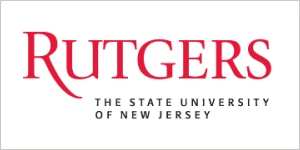PI: Dr. Narayan B. Mandayam
co-PI: Dr. Arnold Glass
Grant period: Oct.1st 2014 - Sep.30th 2017
NSF award #: 1421961
Abstract:
There is a recognition and push in both industry and academia towards the goal of achieving "1000x"
capacity for wireless. The solution approaches range from spectrally agile cognitive radios with novel
spectrum sharing, to use of higher frequency spectrum as well as smaller and denser cell deployments
referred to as heterogeneous networks (HetNets). While this is a much needed activity with many challenges
to overcome, providing a spatially high density of wireless/wired backhaul as required for HetNets is
expensive and the overwhelming demands on wireless capacity fundamentally remain, in that state-of-the-art
systems are nowhere near the 1000x capacity target goals and perhaps even an order of magnitude or two away.
As a result, wireless service providers (SPs) in recent times have resorted to control access and services
being provided to end-users via differentiated and hierarchical monetary pricing. A complementary approach
termed "prospect pricing" is proposed as a way to support data demand and relies on influencing end-user
(human) behavior using dynamic pricing algorithms when technological solutions by themselves cannot satisfy
the demands of wireless data. When a SP controls access to end-users via differentiated and hierarchical
monetary pricing, then the performance of the network is directly subject to end-user decision-making that
has shown to deviate from expected utility theory (EUT). Prospect Theory, a Nobel prize winning theory that
explains real-life decision-making and its deviations from EUT behavior is used to design "prospect pricing"
for wireless networks. Specifically, dynamic pricing algorithms for wireless data are designed to enable
HetNets to manage the ever increasing demand for data, especially when both spectrum and infrastructure
resources are constrained. Using a mix of theory, algorithm development and experimentation with human
subjects, the research agenda is carried out by a team comprised of a wireless networking/systems engineer
and a cognitive psychologist.


